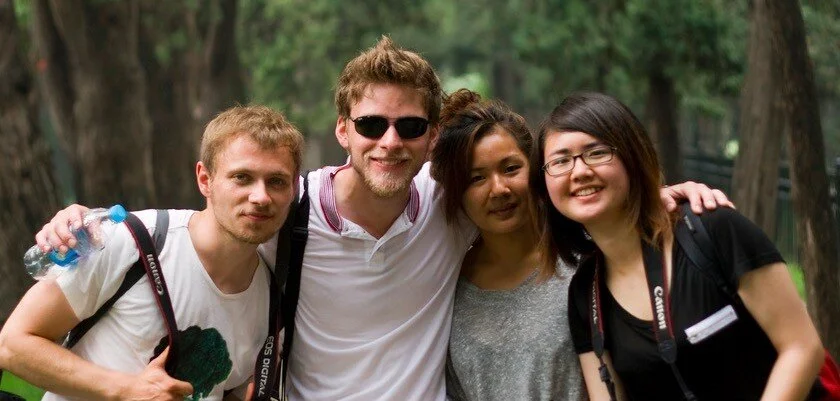mctrent/Flickr
There's a big difference between a reason to get out of bed versus something that makes you smile when you wake up. It's the difference between an obligation and a purpose.
What do you most value? Where can you have the greatest impact? What is possible, given your stage of life and personal circumstances?
I once received a note from a woman who sounded desperately lonely and very upset that she had no support. She was wrestling with some real problems, none of which I could solve with an email. Instead, I made a simple suggestion: find a way to help others. If she flipped her mindset, she might be able to form meaningful connections with other human beings. Instead of waiting to be helped, she could help others. Will she still have serious problems? Yes. Will she be as lonely and isolated? No.
Find a way to help others, and find the intersection between doing so and giving yourself satisfaction.
People, resources, and even germs now routinely travel great distances in a matter of hours. In such a world, it is not enough to simply look out for your own needs. Before you can get what you want, you have to help others get what they need.
Although I believe in altruism, that's not my point today. In an interconnected world, it's not altruism that ought to motivate you to help others fulfill their potential; it is self-survival.
If other countries don't have the means and motivation to prevent widespread outbreaks of disease, we will all be subject to such illnesses.
If entire populations are bereft of hope or advancement, we will all be at the mercy of people who have nothing to lose and everything to gain by disrupting the status quo.
If we teach our children to ignore the poverty, misery, and despair just hours away from them, we will create a heartless generation only disguised as a civilized one.
So in a very real sense, by helping others you will be helping yourself. That is certainly true in the long run.
A great way to get started is to get outside your personal bubble, writes Leo Babauta on Zen Habits. He observes, "We can start to see that our personal desires are actually pretty trivial, and that there’s more to life than trying to meet our pleasures and shy from our discomfort. There’s more than our little fears. Including: the pain and suffering of other people, and compassion for them. Compassion for all living beings. Wanting to make the world better."
In a similar manner, when you escape the endless loops of your own thinking, you gain perspective and find often much better ways to navigate your own challenges and opportunities. Plus, you connect with others.
"Social capital is one of the biggest predictors for health, happiness, and longevity" reports BeWell@Stanford University. Many physical and mental ailments are basically loneliness manifesting itself in your body.
If you don't believe me, let me make the same point from a negative perspective. "Captors use social isolation to torture prisoners of war—to drastic effect. Social isolation of otherwise healthy, well-functioning individuals eventually results in psychological and physical disintegration, and even death" observes this research report.
To stay healthy, you have to make good friends. I'm not talking about getting 98 Likes on your latest Instagram post. I'm talking about making the kind of friends who will help you clean your garage or invite you over to dinner on the spur of the moment.
If you don't know how to make friends, here is a wonderful primer on how to get started, along with these resources:

